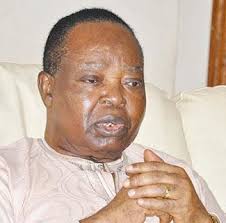***Warn against use of the ammendment to usurp mandates of other professions
Stakeholders in the financial sector on Thursday raised objections to some sections of a bill for an Act to amend the Institute of Chartered Accountants of Nigeria (ICAN), Act No. 15 of 1965 and for other matters connected thereto.
At a public hearing organized by the Senate Committee on establishment and Public Services for the purpose of the bill prominent stake holders like Chartered Insttutute of Taxation (CITN), the Association of Nigeria Taxation Students(ANTAS), the Chartered Institute of Treasury Managementof (CITM) and the Nigeria Deposit insurance Corporation (NDIC) objected to some sections of the Act.
According to them, ICAN was using the ammendment to take over their professions.
The 16th President of the CITN Barrister Samuel Agbefuyi said, the opinion is the same among all the stakeholders that came except ICAN.
“Everybody should maintain its lane, if you are an accountant, I am one that knows what it means to be a tax practitioner. If you talk about tax practice I am one, if you talk of a lawyer I am one, if you talk of a stock broker I am one. So I know what it is to be all these. You can not use one legislation to override other professional bodies in the society, that is our message.”
He said there is nothing wrong with the amendment but you can not use this amendment to annex other professional bodies
“They have right to do their internal control and internal cooperate governance but you can not use that annex the profession that have been certified by the National Assembly.”
The National President of ANTAS Babtunde Opeyemi in his presentation expressed strong concern regarding sections 21 and 28 of the ICAN Act Amendment Bill 2024 (SB265).
“Section 21 of the Bill introduces a new provision to the Principal Act, allowing Chartered Accountants to practice as Tax Practitioners. Section 28 expands the definition of “Accountancy practice” to include tax practice.

According to him their objections he said is the Dual Regulation granting ICAN authority over both accounting and taxation regulation which he said risks overlap and confusion.
“Currently, the Chartered Institute of Taxation of Nigeria (CITN) oversees tax practitioners, ensuring competence and ethical standards. Introducing ICAN as a second regulatory body for taxation could create inefficiencies and uncertainties both for tax professionals, tax payers and students who in no distance time doubles as both the former and the latter.
Explaining further he indicated that Taxation demands specialized knowledge beyond general accounting principles, as it requires a holistic training of the practitioner on both the legal and ethical demands of the job and CITN has over the years mastered the game.
“ANTAS accommodates students from diverse backgrounds including Law, Marketing, Finance, Economics among others, highlighting the interdisciplinary nature of tax practice.
“Allowing ICAN to regulate taxation may undermine the specialization necessary for effective tax practice.
On the Legal Implications he said the proposed amendment may lead to legal disputes.
“Past conflicts between ICAN and CITN, such as the ICAN v CITN case (Appeal No. SC. 492/2013), demonstrate the potential for legal entanglements. Expanding ICAN’s regulatory powers into taxation could exacerbate such conflicts.
“To Avoid Conflict of Interest and ensure Professional Independence it is imperative that ICAN does not regulate both accounting and taxation.
“A single body regulating both areas could compromise the objectivity and impartiality required in these fields. Ensuring that CITN remains the sole regulatory body for taxation helps maintain clear boundaries and prevents any potential conflicts of interest, thereby upholding the integrity and independence of tax practitioners.
Continuing he said, taxation is not merely an extension of accountancy; it encompasses elements of law, economics, finance, and public policy.
“CITN’s training and certification processes are specifically designed to address this complexity and breadth. Allowing a body like ICAN, which primarily focuses on accounting, to oversee taxation could dilute the specialized expertise that CITN provides, ultimately compromising the quality and effectiveness of tax practice in Nigeria.
He urged the National Assembly to reconsider sections 21 and 28 of the ICAN Act Amendment Bill and exclude all Tax related phrases therein.
Allowing ICAN to regulate taxation risks diluting specialization, fostering legal disputes, and confusing practitioners and students.
“We recommend maintaining the current regulatory framework, with CITN independently overseeing tax practice. ANTAS encourages dialogue and collaboration to ensure effective and efficient regulation within the Nigerian taxation landscape.
The Registrar and chief executive of CITN Adedoyin Olumide raised concern about the proposed amendments to the ICAN Act 1965 about its overreach and conflicts with the domains of other professional bodies.
“While ICAN’s efforts to modernize are commendable, the bill’s extensive scope could disrupt the professional ecosystem and lead to regulatory conflicts.
Register/Chief Executive CITM
Adedoyin Olumide said the Chartered Institute of Treasury Management in her self-appointed role as a custodian of integrity, due process and transparency would keep on being the conscience of objectivity and promoting harmonious relationship within the confines of the financial management practitioners’ community.
“By enjoining this Distinguished assemblage to expunge from this amendment Bill all the listed areas of specialization already covered and passed into an Act of the National Assembly by this August Body the amendment should focus on enhancing ICAN’s core competencies in accounting, auditing, and financial reporting.
“Collaborate with Other Bodies: ICAN should work with other professional bodies to delineate clear boundaries and avoid overlapping jurisdictions.
“Ensure that any amendments align with existing laws and judicial rulings to maintain regulatory clarity and professional integrity.
In conclusion, he said, while the bill aims to modernize ICAN’s framework, careful consideration and revision are needed to prevent conflicts and ensure that each professional domain maintains its integrity and expertise.
The sponsor of the Bill senator Adeola Solomon Olamilekan who said he is proud member of ICAN asked for total support of the amendment as the act had not been be since 1965, since the establishment of this institution.
“As the last speaker said most of other professional bodies that came after the establishment of this institute are all indirectly or indirectly members of this great institute.
“And as such, the amendment we are searching for is to make ICAN to be more formidable, to be more competitive, and also to be in line with current global practices andcome to professionalism.
“We aware of the fact that a lot of things are ongoing, we cannot be left behind. We need to do all that we need to do to let us take our rightful place among the commity of nations and the profession in the world.
“As a sponsor of this meeting. As I’ve said, the act came into being on 1st September 1965, some 59 years ago.
“The Act empowered the Institute to set standard and regulate the practice of accounting professionally in Nigeria.
“In line with the dynamics of the environment, development in the economy, and changing needs of chartered accountants over the years, it has become imperative to amend certain provisions of the Act, as well as to start new provisions to bring the Act up to the current realities.”
He said a total number of 26 amendments have been sought ICAN.
The Chairman of the Committee, Senator Cyril Fasuyi, told the stakeholders that they have no need to doubt the integrity of the committee on the public hearing
He said the sponsor was not a member of the committee of 25 members adding that there are only four Accountants in their midst, hence he promised that justice will be done.





Enjoyed examining this, very good stuff, regards.